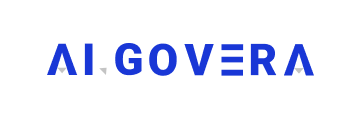Name of Project: A scripting language for DAOs
Proposal in one sentence: Integrating human computation algorithms in Web3 algorithmic flows.
Description of the project and what problem is it solving: Some applications require or benefit from human intelligence (e.g. data annotation, content moderation, consumer research).
This projects intends to build standardized primitives and interfaces (think OpenZeppelin) for human intelligence tasks in DAOs, and their integration in automated algorithmic flows, beyond yay/nay voting on proposals.
Promising results, reported in the early 2010’s with Amazon’s mechanical Turk, showed how the intelligence of crowds can be integrated to software. However, Turkit, the software kit born out of these early efforts, did not have much applications beyond academia.
Independently, the advent of DAOs shows promises for decentralized, coordinated decision-making. However, current modular DAO tools, such as the DAOstack seem to have made the following, limiting design choices:
• Human intelligence tasks are limited to a binary vote on proposals (yay or nay), with limited modularity regarding the aggregation procedure for votes.
• Integration in software are one-off; limited to a submission of a proposal for voting and eventual call to a contract based on the result of the vote.
• Submissions are made by human operators and do not make use of artificial intelligence.
• The stack is limited to Web3 and does not consider e.g. Discord as part of the scope of the tooling for DAOs.
The standardization and expansion of tasks requiring human intelligence can allow for the expression and rapid development of a wide-range of applications, in a unified language. Examples can be found in the Section Example Applications at the end of this proposal.
Definition of terms
• Human Intelligence Primitive (HIP, after TurKit): a fundamental decision problem submitted to individual members of a DAO, and an aggregation procedure for individual submissions.
• Scheme (after DAOstack): A procedure performed by the machine with the output of a HIP as input, and/or a call to a HIP as output.
Grant Objectives:
Explore some or all of the following improvements to the DAOstack and produce the corresponding tooling:
• A taxonomy of interesting atomic problems for Human Intelligence Primitives. The following classical problems are considered:
P1. Choice: Selecting the best alternative in a finite set. Yay/Nay is here, with a two-set.
P2. Ranking: Ranking alternatives in a finite set.
P3. Sorting: Assigning alternatives from a finite set to ordered classes (e.g. Good, Average, Bad).
P4. Classification: Assigning alternatives from a finite set to unordered classes (e.g. Dog, Cat, Bird).
P5. Search: Generating a string from an infinite set (e.g. recommend a movie to watch tonight, show me a completion hash for this tutorial).
• A wider set of aggregation procedures corresponding to these problems
(see the literature on Multicriteria Decision Analysis). Aggregation can be token-weighted, or one address/one vote.
• Allowing for arbitrary logic and iterations between HIPs and schemes.
• Extending schemes beyond a contract call.
• Augmenting the stack with artificial intelligence (e.g. an AI trained on Dune Analytics identifies interesting investment opportunities and creates a proposal for the DAO to pursue them).
• Extending the scope of the stack to Discord bots (e.g. Discord mod elections, an interesting product in its own right).
Grant Deliverables:
-
Grant Deliverable 1: A standardized framework for Human Intelligence Primitives and their integration in Web3 applications.
-
Grant Deliverable 2: Solidity interfaces and contract instances for primitives P1 to P5.
-
Grant Deliverable 3: Examples of applications in pseudo-code. See Example Applications at the end of this proposal.
-
Grant Deliverable 4: possible academic publication related to this framework.
Funding Requested: 1000 USD
Project Lead: Nassim Dehouche.
Socials:
Twitter: https://twitter.com/ndehouche
Collaborators:
This proposal is born out of a discussion with Richard Blythman, and benefitted from many of his ideas. He will hopefully be involved in the delivery of the project. We also happily welcome contributors from the Algovera community. Please reach out on Discord.
Value add for Algovera community:
- A standardized framework and contract interfaces for the rapid development of DAO governance tools, crowd work platforms, and other applications utilizing human intelligence.
- Open-source Solidity code.
- (Possibly) academic publications in reputed Computer Science journals and conferences that would increase the profile and credibility of Algovera among investors and other stakeholders.
Example applications:
If successful, this endeavor would essentially provide a common language that can automate/modularize services as disparate as http://earn.com/, the Mechanical Turk, Customer Surveys, Discord Mod Elections, Human-Annotated Datasets, what have you…
Examples follow.
Building annotated-datasets for machine learning:
•Creator chooses minimum and maximum participants and their rewards and pays fee corresponding to the primitives needed.
•Calls a classification primitive.
•Some aggregation procedure (e.g. most common category for an object among participants)
•Contract pays participants and delivers results.
Discord Mod Elections (Pure Web2 example):
•Discord bot calls for candidates (Search primitive).
•Calls a ranking primitive.
•Some aggregation procedure (e.g. Condorcet).
•Automatically assigns mod roles based on the results of the vote.
http://earn.com/:
•Creator chooses minimum and maximum participants and their rewards and pays fee corresponding to the primitives needed.
•Calls a search primitive (generating a string corresponding to the completion hash for a course). •No aggregation.
•Contract pays participants and delivers results.
Customer surveys:
•Creator chooses minimum and maximum participants and their rewards and pays fee corresponding to the primitives needed.
•Calls a ranking primitive for say different designs of a product.
•Some aggregation procedure (e.g. Borda count). •Calls a ranking primitive for say different designs of a product.
•Contract pays participants and delivers results.
